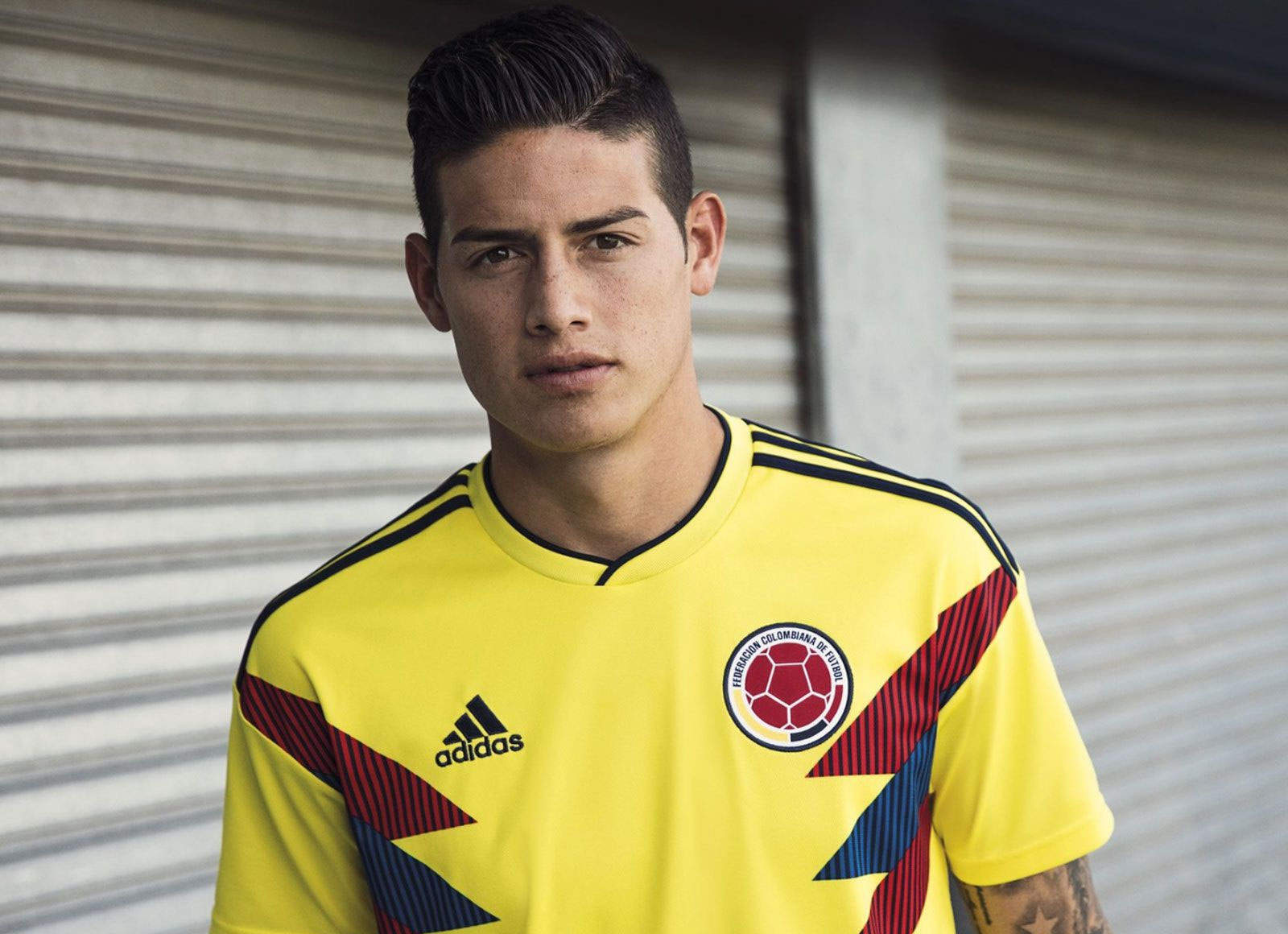
You’ve probably heard of Bitcoin, but it’s unlikely that you’ve heard of the JR10 token. That’s the name of Colombia’s star footballer James Rodriguez’s cryptocurrency, launched two days before the beginning of the World Cup and the latest in a line of peculiar football cryptocurrency crossovers.
The JR10 token, named after Rodriguez’s initials and shirt number, is marketed somewhat ambiguously as a way for supporters to join a “closer fan community”. Fans can buy JR10 tokens to have the chance to interact with Rodriquez in the form of VIP tickets and “exclusive souvenirs”.

Access deeper industry intelligence
Experience unmatched clarity with a single platform that combines unique data, AI, and human expertise.
According to SelfSell, the blockchain-powered fintech platform behind the JR10 token, scoring goals and winning matches will help increase the value of the football cryptocurrency, giving investors the possibility to make a profit.
James Rodriguez football cryptocurrency: the latest step in crypto-mania
The Colombian international, who is currently on loan at Bayern Munich from Real Madrid, described it as a “super cool trial”.
It’s the latest quirk of crypto-mania, with Bitcoin’s skyrocketing value drawing scores of investors and opportunists into the world of cyryptocurrencies; digital currencies built on blockchain technology. Blockchain is an open ledger, decentralised system that records transactions, such as currency transactions, on a global network of computers.
It has come under fire from some, who have warned it is easy for scammers to set up fraudulent cyryptocurrencies. This led to Google cracking down on cryptocurrency advertising, and Bank of England governor Mark Carney calling for tighter regulations of cryptocurrencies.

US Tariffs are shifting - will you react or anticipate?
Don’t let policy changes catch you off guard. Stay proactive with real-time data and expert analysis.
By GlobalDataFootball has met cryptocurrency before
However, it is not the first time the world of football has overlapped with cryptocurrency.
In March, former Liverpool and England striker Michael Owen unveiled the “Owen Coin”, in collaboration with Global Crypto Offering Exchange. Fans can supposedly use the tokens to buy Michael Owen merchandise, make donations to charities and for personalised interactions such as streamed training sessions. The limited use for the coin led to some critics arguing that the football cryptocurrency was effectively worthless.
More commonly, footballers have been used in an ambassadorial role, rather than spearheading their own football cryptocurrency, much in the same way that footballers are used to promote more traditional products such as clothing and drinks. Retired Portugal international Louis Figo was appointed ambassador of STRYKZ, a token issued by Berlin-based Stryking Entertainment for football fans to use in fantasy football matches. Brazillian superstar Ronaldinho has also shown an interest in cyryptocurrencies, endorsing decentralised sports investment ecosystem SportyFi.
The cryptocurrency craze isn’t just limited to players, either. Ex Portsmouth and Tottenham manager Harry Redknapp jumped on the crypto-bandwagon in October last year, tweeting that he was “proper excited” about the launch of a new cryptocurrency called electroneum.
Suspicions that Redknapp was being paid to promote the coin were quickly addressed by electroneum, who insisted that he wasn’t working for the cryptocurrency.
Harry has bought some Electroneum and isn’t being paid for this – he’s just excited as are the other 70,000 @electroneum buyers so far.
— electroneum (@electroneum) October 12, 2017
Outside of football, boxer Manny Pacquiao, actor Jamie Foxx and rapper 50 Cent have all been involved in the world of cyryptocurrencies.
Personalised cryptocurrency is not just for footballers
While the JR10 token is piggybacking off World Cup fever, SelfSell sees itself as a platform for anyone to tokenise themselves on a blockchain network. The idea is for “talents and assets”, such as singers, actors and startups, to sell future equity in themselves to raise funds.
The blockchain element may be new, but the concept of selling future equity in yourself is not. In 2013, a crowdfunding platform launched that allowed people to sell stock in themselves.
It is not the first time that footballers have been commoditised, either, with the Football Index stock market offering fans the chance to buy stocks in players since October 2015, with their values rising and falling depending on performance.
The notion of selling stock in yourself could also seem a little unsettling to some, stirring up the idea of a Black Mirror-esque dystopia where people are owned by cooperations in a form of digital servitude.
SelfSell founder and CEO Yuan Li, however, is optimistic about the technology’s potential.
“We are now confronting a precious opportunity of reshaping the world value system by blockchain, the function of organisation is decreasing while the value of human resource is increasing,” he said.
SelfSell reportedly sold 50,000,000 JR10 tokens in 12 seconds during presale for a total of $500,000.






